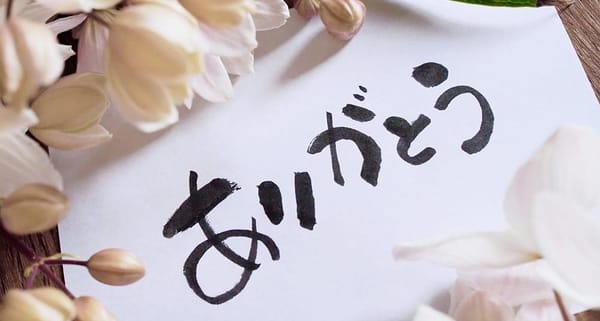Say It Softly: How to Speak Up at Work in Japan Without Causing Waves
Want to share ideas or give feedback at work in Japan without sounding too direct? Learn how to use cushion words to speak up respectfully.

You’re in a meeting. You’ve got a solid idea - one that could actually help the team - but something holds you back. You hesitate. You replay your sentence in your head five different ways, wondering which version sounds helpful but not pushy, respectful but not weak. And then the moment passes.
If you’ve ever felt like this in a Japanese workplace, you’re not alone. I’ve been there. Speaking up in Japan can feel like tiptoeing through a maze of invisible social lines. The good news? There is a way to speak your mind and maintain harmony. You just need to say it softly.
🌸 Why Softness Matters (and Doesn’t Make You Weak)
In Japanese work culture, harmony - wa (和) - is everything. It’s not just a nice idea; it’s a guiding principle. And part of maintaining that harmony is learning to read the air - kuuki o yomu (空気を読む). That means tuning in to what’s notbeing said, picking up on subtle cues, and being thoughtful about how your words might land.
So what happens when you speak too directly? Even if your intentions are good, it can come off as abrupt, disruptive, or worse - selfish. But that doesn’t mean you have to bottle things up. It just means you need a softer delivery.
💡 Cushion Words: Bubble Wrap for Your Opinions
Here’s where cushion words come in. In Japanese, they’re called kusshon kotoba (クッション言葉). These polite phrases act like a verbal buffer - they prepare the listener for what you’re about to say, and soften the emotional impact.
They’re especially helpful when:
- Asking someone to do something
- Giving feedback
- Sharing a different opinion
- Interrupting or making a correction
And yes, they’re totally worth learning.
Here are some of the most common ones:
| Japanese | Romaji | Feels like saying… |
|---|---|---|
| お手数をおかけしますが | Otesuu o okake shimasu ga | "Sorry to trouble you, but..." |
| 恐れ入りますが | Osore irimasu ga | "Pardon me, but..." |
| 申し上げにくいのですが | Moushiage nikui no desu ga | "I hate to say this, but..." |
| ご参考までにですが | Go sankou made ni desu ga | "Just for your reference..." |
| ごめいわくでなければ | Gomeiwaku de nakereba | "If it's not a bother..." |
| 差し支えなければ | Sashitsukae nakereba | "If it's not an issue..." |
You don’t need to use them all the time, but sprinkling them in the right moments shows emotional intelligence - and that you understand the rhythm of the culture.
🗣️ Everyday Scripts You Can Actually Use
Let’s say you’re in one of these classic situations. Here’s how you can speak up, cushion-style:
1. Need to reschedule a meeting with your boss?
「お手数をおかけしますが、もし可能であれば、会議の時間を変更することはできますか?」
Otesuu o okake shimasu ga, moshi kanou de areba, kaigi no jikan o henkou suru koto wa dekimasu ka?
"Sorry to trouble you, but if possible, could we reschedule the meeting?"
2. Didn’t understand your coworker’s explanation?
「恐れ入りますが、先ほどの説明について、もう一度教えていただけますか?」
Osore irimasu ga, sakihodo no setsumei ni tsuite, mou ichido oshiete itadakemasu ka?
"Excuse me, but could you kindly explain that again?"
3. Want to suggest a different approach without being pushy?
「申し上げにくいのですが、もう少し別のやり方を提案してもよろしいでしょうか?」
Moushiage nikui no desu ga, mou sukoshi betsu no yarikata o teian shite mo yoroshii deshou ka?
"It’s hard to say this, but would it be okay to suggest a slightly different approach?"
4. Giving soft feedback to a colleague?
「ご参考までにですが、こちらの方法も検討してみてもいいかもしれません。」
Go sankou made ni desu ga, kochira no houhou mo kentou shite mite mo ii kamo shiremasen.
"Just for your reference, this method might also be worth considering."
🤝 Not Fluent in Japanese Yet? You Can Still Sound Considerate
You don’t have to speak perfect keigo to show respect. Even using a few simple phrases can go a long way:
- 「すみません、ちょっとお似いしたいのですが...」Sumimasen, chotto oukagai shitai no desu ga...
- 「ごめんなさい、確認させていただけますか?」Gomen nasai, kakunin sasete itadakemasu ka?
- 「ありがとうございます、すごく助かりました!」Arigatou gozaimasu, sugoku tasukarimashita!
Tone matters more than grammar. Speak gently, smile if it fits, and you’ll be surprised how much goodwill that creates.
❤️ Soft Is Smart
Speaking softly in Japan isn’t weakness. It’s wisdom. It shows you’re paying attention to the people around you - their time, their mood, their pride.
If you’ve ever felt "too direct" or "too foreign" for a Japanese office, you’re not. You’re just still learning the social language. And trust me, once you get the hang of cushion words, you’ll not only be heard - you’ll be respected.
In Japan, Soft Words Can Land Strong
In a culture where subtlety is a strength, the quietest voices often carry the most weight. Speaking up isn’t about making noise - it’s about creating space for your ideas to breathe.
So go ahead, say what you need to say. Just say it softly.



